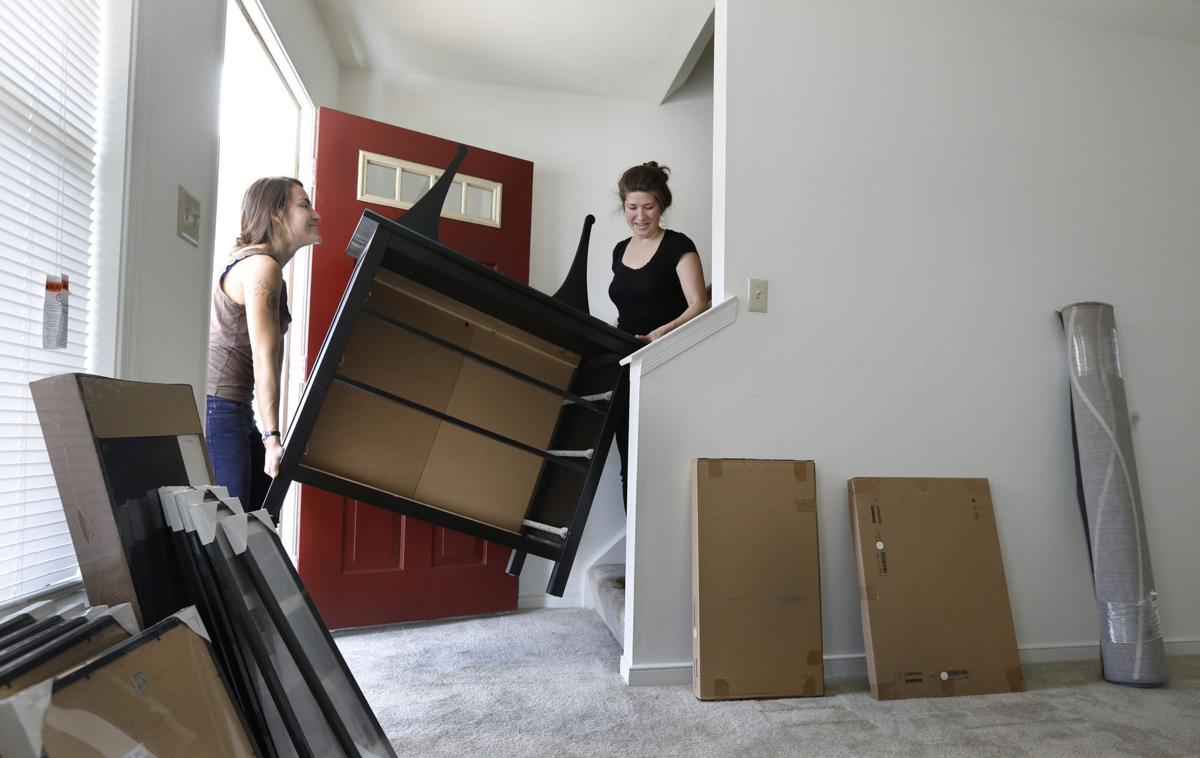Nadine Marsh-Carter and Greta Harris: Virginia can and must do better for our aged-out foster youth
By Nadine Marsh-Carter and Greta Harris
 Every year, the Commonwealth of Virginia has more than 5,000 children in its protective custody because they have been abused or neglected by their parents. When we make the difficult, but necessary, decision to place these children in foster care, we have an obligation to prepare them to lead happy, productive lives.
Every year, the Commonwealth of Virginia has more than 5,000 children in its protective custody because they have been abused or neglected by their parents. When we make the difficult, but necessary, decision to place these children in foster care, we have an obligation to prepare them to lead happy, productive lives.
Research proves that the best option for these children is to be adopted into a loving family. Sadly, each year hundreds of children in Virginia — and the largest percentage in the country — age-out of the foster care system when they turn 18 without being adopted.
Our duty to support these young adults must not stop there.
The nearly 500 young people who transition out of foster care in Virginia every year are sent into the world without permanent housing. Their educational outcomes are uncertain, their job prospects inadequate.
Like most 18-year-olds, they’re not prepared to be fully on their own. Their challenges are compounded by histories of abuse, abandonment, and instability.
***
To better understand the challenge, the Better Housing Coalition and Children’s Home Society of Virginia, with support from the Robins and Brookfield foundations and other area funders, commissioned a nationwide survey detailing what states are doing to serve this vulnerable population and taking
a closer look at what we are doing in Virginia.
While there are some bright spots, such as the Virginia Community College System’s Great Expectations program that helps former foster children attend college, the overall outlook is bleak.
Nationwide, nearly half of these young people will be homeless or in jail within a year of leaving our care. Even in states where programs are available to youth over the age of 18, many are severely under-used because they represent a check-the-box approach to deal with youth who need more individualized care.
Unsurprisingly, housing emerged as a critical, foundational need. In many cases, the lack of reliable and affordable housing means these young people lack the stability that will allow them to become self-sufficient adults.
We need to think differently about the way we serve those taken into our care.
Parents know that a one-size-fits-all approach to raising kids doesn’t work — every child has their own hopes and dreams, obstacles and challenges. Foster youth are no different.
We need an approach that is centered on the individual, and we need to recognize the effects of chronic trauma on these young adults.
We need to provide them with reliable housing while they gain the skills to chart their own pathways to success.
We need to make sure our policies and practices make this approach possible.
This is not just the right thing to do; it’s economically smart.
If young adults who age-out of foster care graduated from high school at the same rate as the general population of young people, those 7,000 additional graduates would, nationally, earn $1.8 billion more over their working lifetimes, and contribute $430 million in additional taxes.
In 2016 and 2017, funding was included in Virginia’s budget to help support this population as a part of th
e Federal Fostering Futures Act.
We must use this money wisely and we must use it in ways that work.
Investing up-front in these youth creates huge savings in safety, health, and human services over the long run.
 In 2015, the Better Housing Coalition and Children’s Home Society of Virginia launched The Possibilities Project to give youth the stability and support they need to become successful and productive members of their communities.
In 2015, the Better Housing Coalition and Children’s Home Society of Virginia launched The Possibilities Project to give youth the stability and support they need to become successful and productive members of their communities.
The Possibilities Project includes both the national and Virginia research outlined above and an evidence-based program serving youth who have aged out of foster care.
The cornerstones of the initiative are stable housing and trauma-informed wraparound services, guided by research and developed to be replicable in communities across the commonwealth and the country.
***
The early results are promising: 100 percent of participants have secure, stable housing; 75 percent are enrolled in postsecondary education or completed vocational training, and 88 percent are employed; 100 percent have long-term connections and mentors, as well as access to comprehensive health-care services. In 2016, The Possibilities Project received the commonwealth’s award for best housing program or service.
We have convened a panel of experts who will analyze the findings of The Possibilities Project’s research and lessons learned to make policy and programmatic recommendations for departments that serve aged-out youth.
The task force will include mental health professionals, housing experts, youth advocates, and aged-out youth themselves to develop strategies and priorities, which will truly change the paradigm and ensure that we are using Virginians’ tax dollars in the most effective way possible.
When we brought kids into the foster care system, we made a promise that we would take care of them. We have an obligation to do all we can to live up to that promise. We can’t turn our backs on them just because they have a birthday.
We can and must do better.
Nadine Marsh-Carter is president and CEO of Children’s Home Society of Virginia.
Greta Harris is president and CEO of the Better Housing Coalition.
